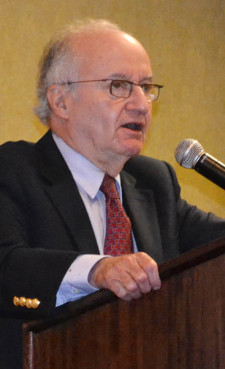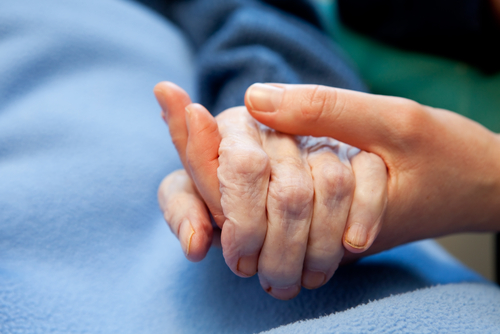(RNS) What are the most difficult and painful questions rabbis, priests, pastors or imams face at the bedside of a dying member?
Surprise: It’s not abstract theological or metaphysical queries.
Rather, THE questions, usually asked in a hospital room, go like this. “My beloved family member is gravely ill. The doctors are recommending some extraordinary and complex medical treatments. I am confused and I am being asked to make a decision. As my spiritual leader, please tell me, what should I do?”
Helping make realistic and sensible medical decisions is rapidly becoming the single most important aspect in a clergyperson’s life. That assertion is based upon my 18 years as a member of the New York State Task Force on Life and the Law.
This 25-member group of clergy, physicians, nurses, lawyers, ethicists, social workers and hospital administrators was created 30 years ago by then-Gov. Mario Cuomo. He wanted the task force to draft pioneering legislation that focused on patients’ rights, including do-not-resuscitate orders, health care proxies (medical powers of attorney), laws relating to surrogate parenting, medically assisted suicides, the legal and medical definition of death, and a host of other critical bioethical issues.
READ: What did God think of that blood moon?
My years on the task force provided a unique vantage point to witness the rapid changes in medical technology, but I also become aware of a larger issue that our spiritual leaders have not adequately confronted: bioethical decisions about the allocation of vital but limited medical resources including health care professionals, mechanical devices and organ replacements.
For decades, most Americans falsely believed that every needed medical resource would always be available to them 24 hours a day, seven days a week no matter a person’s age, gender, race, socio-economic class or place of residency.
But that was a mistaken belief. Medical resources are always finite, and today they are becoming scarcer and increasingly expensive. The growing shortage of physicians, nurses and other health care providers and the escalating costs of prescription drugs are additional signs of a health system at risk.
In addition, despite the achievements of the Affordable Care Act, hospitals, especially emergency rooms and trauma centers, remain overwhelmed with patients. And a medical tsunami of dementia and Alzheimer patients is now underway.
Despite these obvious signs, most of the nation’s spiritual leaders and seminary faculties have not addressed the key bioethical questions that require immediate attention. I well understand that all religious leaders work to preserve and strengthen their own faith communities, but even a perfunctory visit to a hospital ward, ER, home for the aged, hospice or medical clinic brings a clergyperson face-to-face with the staggering ethical problems our health care system is creating.
Who is more entitled to the finite and often shrinking medical facilities? Children under 3 years of age or the elderly? What steps, if any, can be taken to deliver necessary quality health care to America’s rural communities?
Who receives vitally needed organ transplants, especially replacement hearts and livers? The answer greatly varies from state to state. Because celebrities are often bumped to the top of the waiting list, “ordinary” people are deprived of their fair share of scarce body organs.
READ: The Mormon modesty wars: No more ‘slut-shaming,’ please
It is simply not enough for clergy to display the Deuteronomy quote “Choose Life” on their car license plates. There are many more items on the bioethical agenda than abortion. Repeating the mantra of being “pro-life” is frequently a convenient escape from an analytical study of bioethical questions.
Finally, there is one irrefutable thing I learned during my years with the task force: Medical science and technology will move forward with or without the religious community. Major decisions about health care in the U.S., including the staggering question of withdrawing and withholding life support systems from desperately ill or comatose patients, will be made with or without the “benefit of clergy.”

Rabbi A. James Rudin is the American Jewish Committee’s senior interreligious adviser. His latest book, “Pillar of Fire: A Biography of Rabbi Stephen S. Wise,” will be published by Texas Tech University Press this fall. Religion News Service photo courtesy of Rabbi Rudin
If the best thinkers within our faith communities do not address these issues in a thoughtful and informed way, others will decide for us, and that would be an abdication of religious leadership. If that happens, rabbis, priests, pastors and imams will have no one to blame but themselves, and worst of all, desperately ill patients and their troubled families will be the losers.
(Rabbi A. James Rudin is the American Jewish Committee’s senior interreligious adviser. His latest book, “Pillar of Fire: A Biography of Rabbi Stephen S. Wise,” will be published by Texas Tech University Press this fall. He can be reached at jamesrudin.com.)
YS/MG END RUDIN





